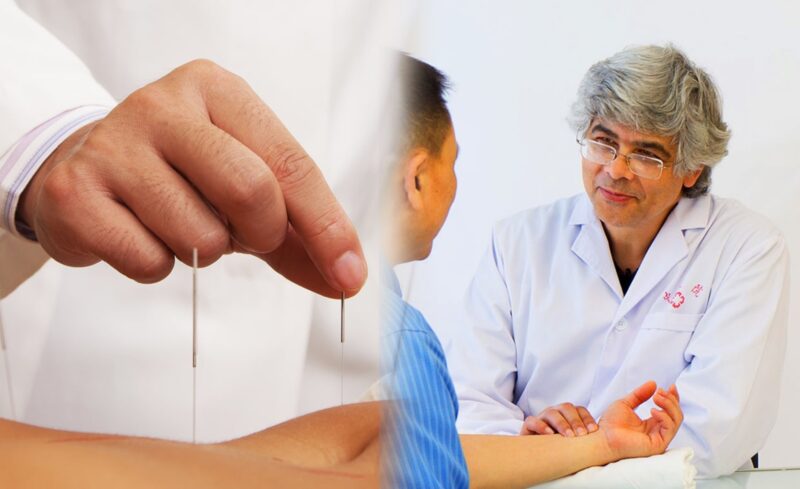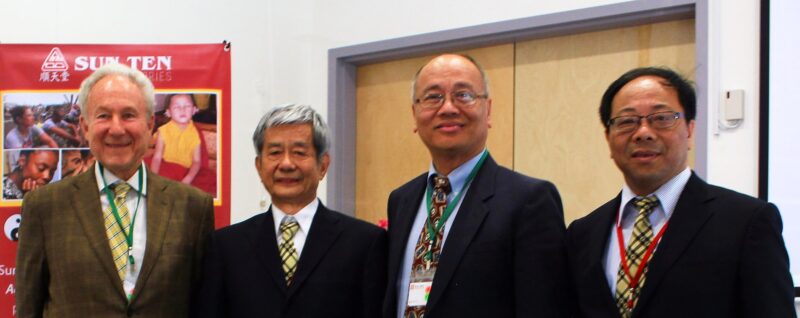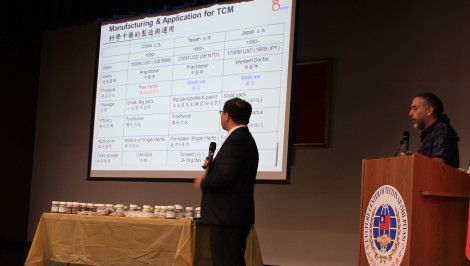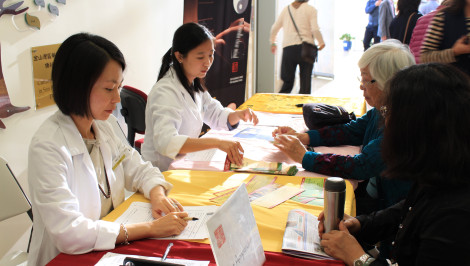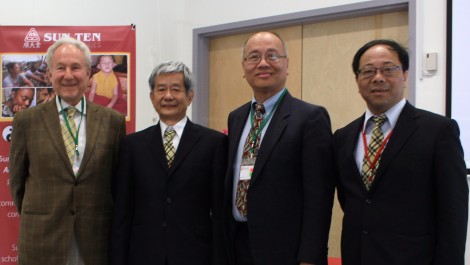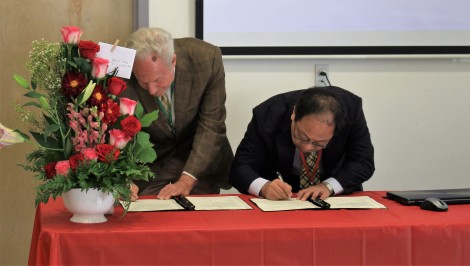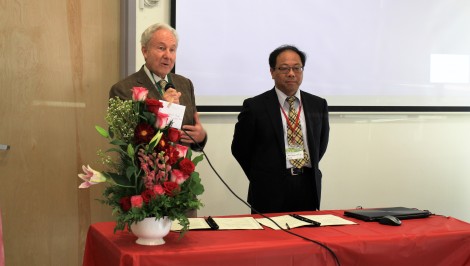For the second installment of our FBU student, alumni & faculty profile series, we sat down with senior Five Branches student and Naturopathic doctor, Sarah Holloway, at Twin Lakes beach to learn what it takes to be an Integrative Medicine practitioner in 2016.
“I feel like Chinese medicine gives me a great way to treat patients with chronic and complex illnesses because it provides a strong and scaffolded structure in which to categorize symptoms. When patients come in with conditions where no immediate diagnosis can be given, or a definitive answer of what they have and how to treat the condition, you really have to back up, look at the tissue states, the nuances of the presenting disease, examine whether there is excess or deficiency, hot or cold and start from there. It’s best to begin with just balancing what you see out of balance today, because if you try to fix the whole thing at once it can be overwhelming.”
FBU: Hi Sarah, thanks for meeting with us today and giving us the opportunity to learn a little bit more about you. So, where are you from originally?
Sarah: I am actually from rural Oklahoma. I remember saying my whole life, “I am getting out of here. There is something going on out there that I have not seen yet and I am going to go find it.” So, I graduated high school and left at 6:30 the next morning to travel for about a year before I started college. Looking back I feel coming from Oklahoma gives me a good perspective on the health of patients because I can understand where they are coming from and put these new lifestyle and health choices into context better. I didn’t grow up on the west coast with people who have grown up eating organic food, doing yoga, and especially not eating kale. Hahaha… So, I feel like it is easier for me to understand how absurd some of these ideas might seem and where people are coming from. I think it is a good thing for healthcare professionals to remember that for the average person, a little change in their diet and lifestyle is a big deal.
FBU: Tell us a little bit about your educational background.
Sarah: I studied pre-med in undergrad at the University of Texas, Austin, you know, pursuing the conventional medicine route. While I was there, I didn’t know anything about Naturopathic medicine, Chinese medicine or even alternative medicine in general. During my studies, I did rotations volunteering at a hospital. I discovered that I liked medicine and the science behind it, but the actual experience of being in a hospital, even after just a short time, was not how I wanted to spend my life. So, I took some time off and worked as a research biologist with the Smithsonian Institute in Panama and discovered Naturopathic Medicine. I enrolled at the National College of Natural Medicine (NCNM) in Portland, where I would then learn about Chinese medicine. I began studying Chinese medicine at NCNM during my 3rd year, pursuing the Masters of Acupuncture degree.
Ever since visiting Santa Cruz the year before I started college, I had always wanted to live here. So, after I graduated from NCNM, I took my boards in August, went to Burning Man, moved to Santa Cruz, transferred some of my Chinese medicine courses to Five Branches University and continued my studies the next Spring Semester. I also began working at a well-known Naturopathic health center a few months later. My studies at NCNM were a mere drop in the bucket compared to the depth of my studies I began here at Five Branches, because without studying Chinese herbal medicine, it’s completely different.
FBU: So prior to your studies at NCNM you had never heard of Chinese Medicine?
Sarah: No, I hadn’t. While I was there, I had a preceptorship with a doctor who was dually licensed as a ND and LAc, and he exposed me to it for the first time during my second year. I wanted to study it further because it works. It’s one of those things where it worked for me personally, I saw it work in the clinic, and it is a bit mysterious in a way. There are a lot of reasons to like it, but initially I got interested in it because I saw the great clinical impact it was having on patients.
It’s nice to have a service. It’s nice to be able to give something. As a Naturopath, everybody develops their own way of practicing. But, actually being able to touch a patient or give them something is so important. So that was what really stood out with Acupuncture. It was a service that you provided and people left feeling better that day. It wasn’t just a plan and a future promise of you feeling better. It was more like, today you feel differently.
FBU: How did you decide to attend Five Branches in Santa Cruz?
Sarah: Location! Location! Location! Hahaha… While I was in in Panama I worked for a post-doc professor at UT, Austin. I met some post-docs from UC, Santa Cruz and just kind of fell in love with how they talked about Santa Cruz, so I got a car and did my first tour of the West Coast. Immediately after that told myself that I would come back here later. That was over a decade ago. Haha… It’s just been one of those places in the world that continued to resurface for me. So, because I had that connection and because I was networking with some Naturopathic doctors in town, I decided to attend Five Branches because it was the best place for me to go. It was almost too good to be true in a lot of ways.
FBU: Do you have any clinical specialties or areas of interest?
Sarah: Well, I have more of a general practice focus at the moment. In my practice I see a lot of what we see at the Five Branches clinic: anxiety, pain, hormonal issues and gastrointestinal disturbances. What has been coming in a lot recently are super complicated, complex, chronic illnesses, like autoimmune conditions, Lyme’s disease, long-term viral infections, herpes virus, CD57 counts bottoming out, or people that are just really, vaguely ill. I didn’t really vote for these conditions, they just kind of came to me.
I feel like Chinese medicine gives me a great way to be able to treat patients with chronic and complex illnesses because it provides a strong and scaffolded structure in which to categorize symptoms. When patients come in with conditions where there is no immediate diagnosis that can be given or a definitive answer of what they have and how to treat the condition, you really have to back up and look at the tissue states and the nuances of the disease and examine whether there is excess or deficiency, hot or cold and just start there. Just start with balancing what you see is out of balance today because if you just try to fix the whole thing it is overwhelming.
So, Chinese medicine for me does so many things, such as whenever you don’t have a totally clear answer, diagnosis or treatment plan in biomedicine, you can still treat successfully with Chinese medicine according to the symptoms that you see the patient presenting with at the time of consultation. You are not treating because you are guessing, you are treating based off of what you see the patient manifesting. If you know your herbs, your acupuncture channel theory and both of their personalities and traits, then you should have an idea of how they are going to work in this person’s bodily condition. Chinese medicine has been incredibly helpful for the kinds of patients that have been coming into my practice lately. I feel like it takes a village to help these people. You know, it takes their specialists, their hematologist, their rheumatologist, their naturopath and their acupuncturist to really get them back on the right trajectory towards health.
FBU: How do you envision combining both medical specialties in your clinical practice after graduation?
Sarah: I will utilize both systems in order to provide whatever will work for a person at any given time based on what they most need. Some people are not going to be into homeopathy or intense diet interventions, and other people are not going to be up for needles. Whatever will work at the moment for each individual is what I will utilize in order to help them get back on track with their health. Obviously Chinese herbal medicine has to be used though because it so effective. It’s a lot like symphonies in music. You are trying to organize and arrange treatment modalities like notes of a melody in order to make it sound appealing, pleasant and not just overwhelming utter chaos. Some people need homeopathy and others need IV therapy. Some people need 5 acupuncture needles and others need 10. You need to find the balance with each individual and I feel like my training has definitely helped me to understand how to approach the true art of medicine.
FBU: What do you feel is the most rewarding part about being a healthcare professional?
Sarah: Honestly, I really do it because I feel like it is a calling. It’s my way of carving out my little piece of fighting the good fight and helping people get back in their bodies and understand how to eat, how to pick out good food that isn’t poisonous and grown by a company that is destroying the environment, and how to reconnect with themselves. A lot of times I hear people tell me stuff like, “oh, you know, well, I can’t eat that because my family doesn’t eat that.” That’s when I tell them that this is a good time to try something different in order to have a sort of ripple effect on their health. So, it’s really about how do we help save the world person by person. Just helping people be healthier, more connected, enlivened, disillusioned and to get away from all of the gunk that is clogging up everyone’s sensory organs. Haha… the “phlegm” as Chinese medicine says. For me it’s a mission. There are a lot easier ways to make money and be successful than to choose the path of medicine, but I feel like it is extremely rewarding, even if it is an uphill battle the whole time in order to learn more and more to help those in need.
FBU: Tell us about a time during your studies at Five Branches where you had an Aha moment and things just began to click and come together.
Sarah: During my studies, and while working with my own health, one of my herbal professors really helped me break out of my biomedical background. She really helped me to integrate the physical, mental-emotional and spiritual aspects of Chinese medicine and to understand how important each of these components are to health. The interrelationships and interactions of these components are known in biomedicine, but I feel it too often gets brushed aside in favor of other treatment approaches that are not holistically focused.
FBU: Do you have any advice or words of encouragement for other healthcare professionals that are considering studying Acupuncture and TCM?
Sarah: You better like it! Hahaha… I get asked this question a lot and I feel like people are often surprised at my answer. Honestly, I think Naturopathy is a bit harder to explain to people and to make a career compared to Acupuncture. It really excites me to know that biomedicine is currently accepting the fact the gut health plays a crucial role in our psyche and overall health. This was not the case even 5 years ago!
I would say don’t go into just because you think it is a good job. I would go into it because you sincerely want to seriously dedicate your life to studying the art of Acupuncture and medicine in all of its forms. Definitely don’t have any illusions that you are going to become some kind of wizard or make a million dollars overnight or anything like that. Some people might become a little frustrated when they realize that Acupuncture and TCM are not something that you can learn over a weekend. It is a serious and in-depth medicine that one can easily devote their entire life to exploring and going further and further.
You have to be willing to look at this as more than just a job. It’s more than just being a practitioner. You have to let it soak into the very depths and crevices of your being. You have to become an ambassador of the medicine and of a new of way of living and be a model of health. It’s not the easiest of roads, but I say GO FOR IT! If you are going to do anything in life you might as well study philosophy and human physiology. They are kinda the coolest topics ever!


